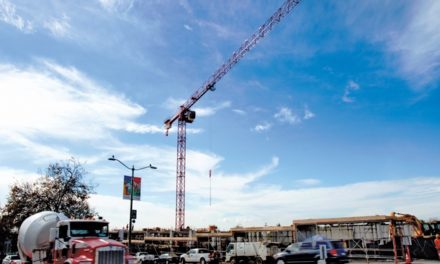Experts predict limited gains for the East Bay 2018 real estate market.
Real estate experts are predicting a calmer market in 2018 after intense competition for homes, and the booming Bay Area economy drove the median price of an Oakland home to almost $700,000 in 2017.
An uptick in interest rates and prices bumping against the affordability threshold will likely moderate growth in 2018, real estate agents and analysts said. The Republican tax plan, which had not yet passed when this report went to press, could also moderate the local real estate market.
Svenja Gudell, chief economist at Zillow, noted that the median home price in Oakland in October soared 8 percent higher than in 2016. “That’s incredible growth,” Gudell said. “You’ll probably see 4 to 5 percent growth in Oakland’s median in 2018. Growth will continue, but more moderately.
“Some of the moderation is coming from the fact that it’s getting more expensive, so it’s going to impact how many people can afford to buy a home here,” the economist added.
A UC Berkeley real estate professor emeritus echoed Gudell’s comments. “Prices are such that sales are going to be slow. It’s getting to the point where people just can’t afford it,” said Robert Edelstein, co-director of the Fisher Center for Real Estate at UC Berkeley’s Haas School of Business. “We are reaching extremes. It’s an unfortunate fact of life.”
Another factor: A slight, but significant increase in interest rates is expected. “Interest rates are going to rise, if only a little bit, and that will impact affordability for sure,” said Patricia Bennett, 2017 president of the Oakland-Berkeley Association of Realtors.
Edelstein said that “if people are already stretched to their limit” and interest rates rise, this will affect their ability to buy. Even a small increase in the interest rate means an increase in a homeowner’s monthly mortgage payment.
The GOP tax plan will also likely be a factor if it passes. The mortgage interest deduction has long been an incentive for people to buy homes. However, the proposed tax plan would make the ceiling for the deduction $500,000—half the current ceiling.
This would hit hard in cities like Oakland, with its $700,000 median price, not to mention Berkeley and Alameda, where the median hovers around $1 million. “The California Association of Realtors surveyed more than 3,000 Realtors in October 2017, and 57 percent of them thought tax reform would slow housing sales,” Bennett said.
Another prediction for 2018: Bennett and Edelstein said the dearth of homes for sale on the market, which has been the case for easily four years, would continue. “There’s nothing on the horizon that is going to produce a lot of housing. It’s a combination of regulatory control of space, and the fees that builders are charged. It’s hard to build housing in California,” Edelstein said.
Overall, Bennett said she agreed with Leslie Appleton-Young, chief economist of the California Association of Realtors, who has said 2018’s real estate market will resemble that of 2017.
“Slightly lower inventory, slightly higher interest rates,” Bennett said. “Basically, more of the same.”
















